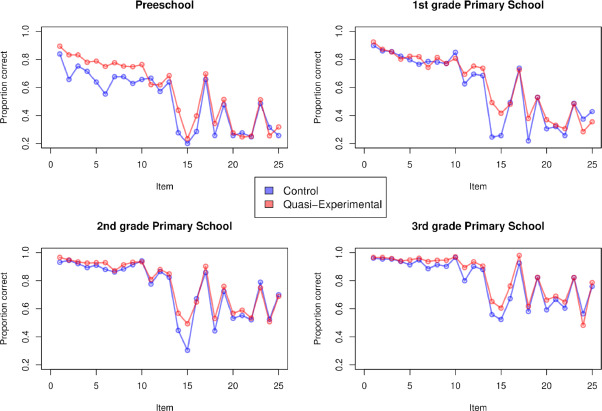This work is co-funded by the Erasmus+ project CoTEDI, which is also co-financed by the European Union under the call-key action 2023-1-NL01-KA220-SCH-000152037 – OID E10207981
J.Moreno-León, M. Román-González, E. Martín-Barroso, M. Zapata-Cáceres, M. Jiménez, G. Robles (December 2025) Enhancing computational thinking skills in early education: exploring the efficacy and feasibility of unplugged methodologies. Thinking Skills and Creativity, vol. 58, 101879, ISSN 1871-1871, https://doi.org/10.1016/j.tsc.2025.101879
Abstract: Computational Thinking (CT) has become the target of several recent educational interventions to foster the logical and abstract thinking of preschool and young primary school students. However, the methods used to teach CT often focus on activities that require digital devices and programming knowledge, limiting their implementation when such resources are not available, or when children are insufficiently familiarized with digital environments. To overcome this limitation, we carried out one of the largest studies conducted worldwide to determine the efficacy and feasibility of unplugged methodologies for teaching CT. In total, 2580 students aged 5–9 years old participated in the project, 1824 of which underwent an educational intervention involving unplugged activities (quasi-experimental group) whereas the remaining 756 students served as a control group. The teachers that participated in the educational intervention were first instructed into the basics of CT and also in the development of unplugged activities that covered diverse CT concepts. Then, they created their own unplugged CT activities and embedded them into the standard curriculum of the schools in at least five one-hour lessons. Once the intervention was completed, a CT test (BCTt) assessing the understanding of computational concepts such as sequences, simple and nested loops, and conditionals was administered to the quasi-experimental and control groups. The results showed that preschool students enhanced their understanding of sequences and simple loops whereas primary school students improved in nested loops. A survey administered to the teachers also showed that they felt largely satisfied with the educational project and that the children enjoyed and felt motivated towards the unplugged activities they executed during the intervention. As such, we recommend the use of unplugged methods to foster CT skills in young children as they have shown to be effective and feasible, especially when teachers are involved in the design of the activities
